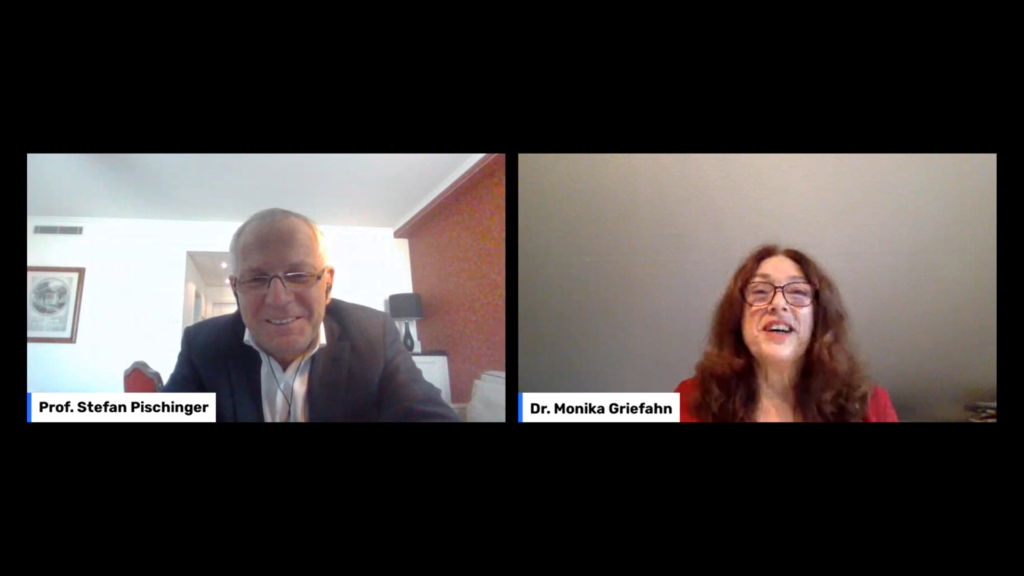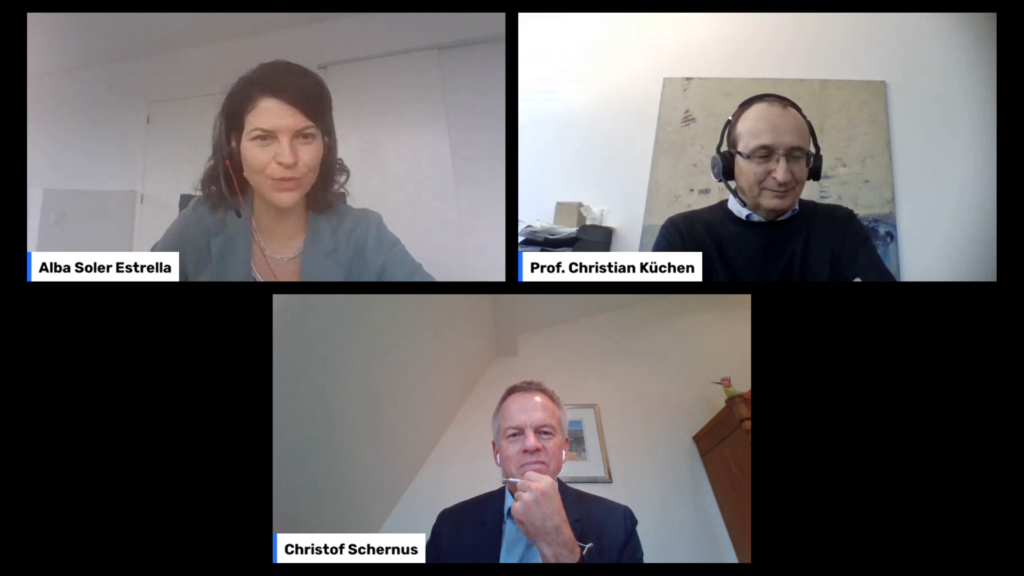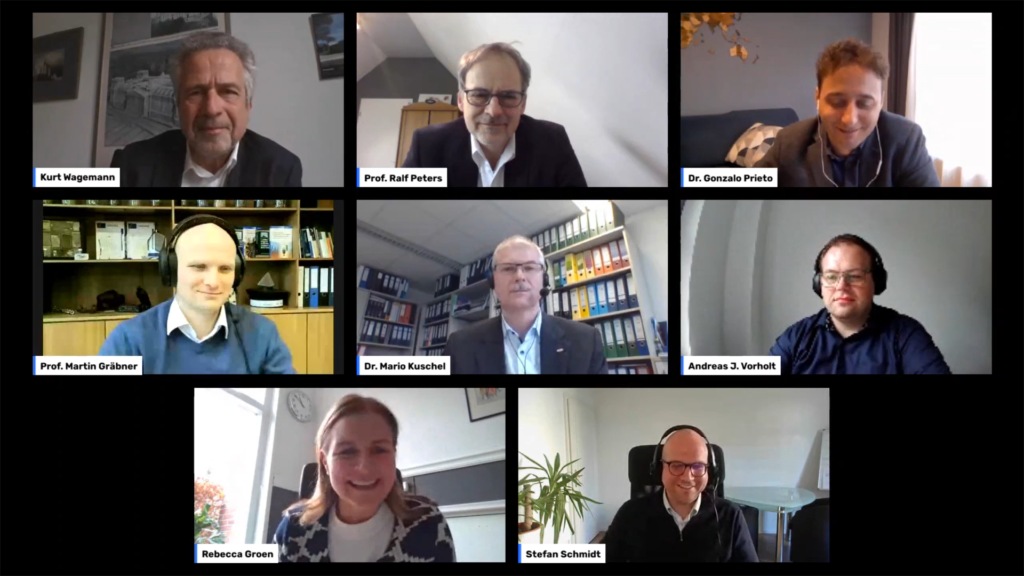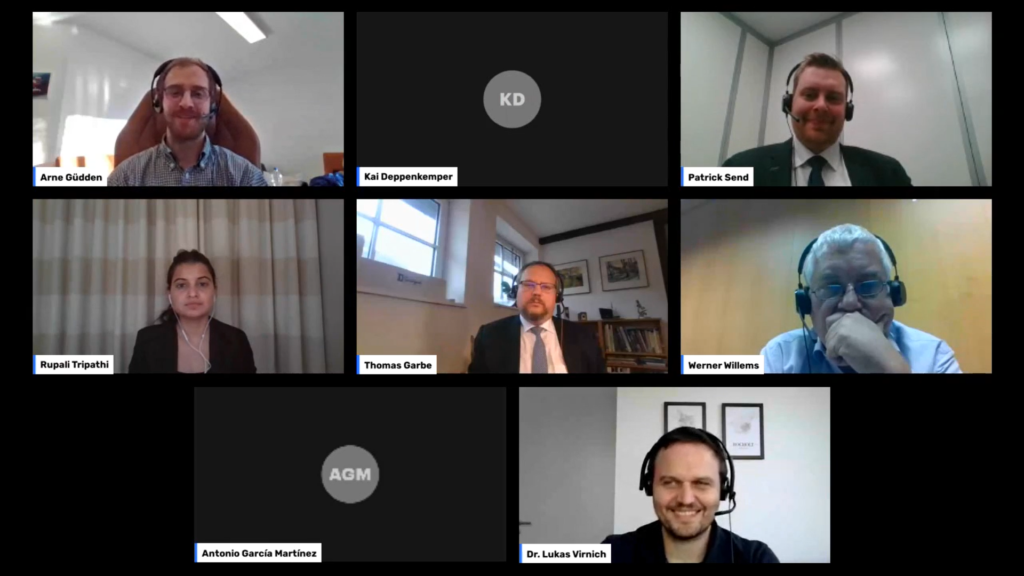Final Event: Review
On November 23 and 24, 2021, the joint final event of C3-Mobility, REDIFUEL and LONGRUN took place. During the two days of the conference with more than 400 participants and 24 speakers, political framework conditions and economic incentives were the topics of much discussion in addition to the technical details on the production and application of synthetic fuels.
In external keynotes on the political debate, the participants were able to exchange ideas and ask questions with experts from research and industry.
Keynote

KEYNOTE: Dr. Monika Griefahn, Chair of the Board of the eFuel Alliance and founding member of Greenpeace Germany.
In her keynote, Monika Griefahn focused on the potential of e-fuels for climate protection. Without e-fuels, there is no solution for the existing fleet. A complete and timely transition of the transport sector requires not only electrification but also the use of renewable fuels, especially in the long-haul and heavy-duty sectors, Griefahn said. She outlined the potentials for possible production sites and market introduction scenarios and discussed the regulatory framework. Griefahn also called for a crediting system for renewable fuels in CO₂ emission standards for new vehicles.
Project Introductions




Zurück
Weiter
In the second part of the introduction, the four projects C³-Mobility, REDIFUEL, LONGRUN and Methanolstandard were presented. Each of the projects focuses on researching and demonstrating different production paths of renewable energy sources.
In Cluster1: Political Boundaries and Economic Viosions and Incentives, Alba Soler Estrella from Concawe gave a presentation on Biomass Availability for the Production of Sustainable Biofuels and
Economical Assessment of e-fuels from the perspective of European refineries. Timo Bollerhey presented the H2Global foundation and Christian Küchen (en2x) presented various strategies for unsing e-fuels. In the subsequent discussion, the participants were able to ask the industry experts their questions.
Cluster 1: Political Boundaries and Economic Visions and Incentives

Cluster 2: Fuel Production

On the second day of the event, the focus in Cluster 2 was on the production of e-fuels. Project partners from Forschungszentrum Jülich, CSIC, MPI CEC, TU Bergakademie Freiberg, CAC, SHV Energy, and Primagas presented the production and distribution of green chemical energy carriers, the production of MtG and DME within the framework of C3-Mobility and the production of Redifuel.
Cluster 3 demonstrated the broad applicability of renewable fuels for various applications – from heavy-duty and long-haul applications to light-duty vehicles and the passenger car fleet. Various presentations also showcased the usability of e-fuels in existing vehicles. Particular focus was placed on efficiency in reducing CO₂ emissions. Aspects of fuel system compatibility and engine-related assessment were also highlighted.
Cluster 3: Fuel Application
